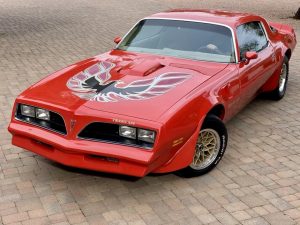Telling the executives apart
The building’s floor space was set up on the “open” plan, that is, broad areas divided into cubicles, with walls, more politely called ‘dividers’, four feet high. Project managers got corner cubicles, nice because there were walls on only two sides and you could look out the window without standing up. There was also greater privacy because a corner cubicle was generally not the shortest distance between two points. Department heads, assistant vice presidents and vice presidents got enclosed offices, with windows and a door.
Status was important. You could determine the size of an office and the relative rank of its occupant by counting the four-feet-square fluorescent lighting fixtures making up the ceiling. For example, there were two levels of assistant vice president and thus two office sizes, leading to expressions such as “Is he a six-light or a nine-light AVP?” There were smaller distinctions also. In one case, a new AVP was housed in a standard six-light office but it was furnished with the fancier desk phone normally issued to the next higher level. A complaint of “too many buttons” was made by another six-light AVP, and the offender’s phone was rightsized.
In another case of jealousy and comeuppance, my final boss at Insco, Ramesh, a vice president who used his six weeks of vacation each year to visit his homeland, had been issued a standard executive desk, but with an oversize desktop – there was an extra four inches of mahogany between him and his visitors. The day after he left for vacation, two of the other vice presidents were in his office with a yardstick, confirming a longstanding suspicion. Next day, workers removed the desktop and took it away, presumably to be cut down to proper size, along with its owner. The two drawer-pedestals underneath were left without a top, their contents exposed to the world.
Ramesh was not popular with his peers, and the other vice presidents just happened to stroll by his office that day, suppressing snickers.
Ramesh was not popular with me, either, and once at an industry social gathering where there was drinking, he introduced me to one of his countrymen as “My employee, Paul Smithee”. I took out a business card, indicated the Continental Soldier and said “That’s funny, you don’t look anything like this.” Writing this today, I realize that was right around the time Ramesh began making my life at work more difficult.

There was another indicator of status, in the employee parking lot. About twenty of the spaces closest to the building entrance were striped off and available on a first come, first served basis to employees of a certain job grade or above. I had made it to that grade, and one morning I pulled in simultaneously with a Pontiac Firebird Trans Am, a car that seemed badly out of place in an insurance company parking lot. Mr. Spohn, a vice president and gentleman, stepped out looking embarrassed. When he saw me, he felt compelled to explain “It’s my son’s.”
Gordon
Gordon, my boss’s boss, was senior vice president in charge of all things directly computer related. He was the first executive to arrive in the morning and the last to leave at night. This allowed him to get daily face-to-face status reports from each of the three computer room shift leaders.
Gordon and I once had to go to the company’s New York office, and on our way back walked by a loading dock where the workers were passing around a hand-rolled cigarette. Without thinking, I commented “Smells like those guys are having a good time.” Gordon asked “What do you mean?”. I told him what the smell was, and he said “How do you know that?”. I got myself off the hook for knowing what marihuana smelled like by telling him the absolutely true story of how my wife and I were at a PTA meeting and a sheriff’s deputy came in with what he called “an artificial marihuana tablet” on a tray, set a match to it and passed the tray around so parents could recognize the smell and manage their children accordingly.
Some of the guys from work formed a hockey team that played in a league at the Ocean Ice Palace. Even though I hate the cold, I let them talk me into coming along to watch their first game. They knew Gordon had played hockey back in college, and asked him to referee. After the game, one player invited everyone to his apartment for a beer. Two players slipped into the kitchen to smoke, and after a while someone noticed Gordon was missing. Apparently, he got a whiff and left without saying goodnight. He just didn’t want to know.
IBM SE Marty
IBM assigns a permanent on-site systems engineer, or SE, to big customers like Insco. The SE serves as interface between the customer and IBM, and as a general rule all communications should go through them. The SE works to keep the interface friction-free, and tries to stay close to the customer’s technical executive, in this case Gordon.
Gordon had me writing a monthly status report about the VM project, copying other Insco executives as well. I never got any feedback to show that anyone was reading it, so I dropped “Stop me before I kill again” into the middle of a paragraph. No response. In the next report, I wrote “Since no one ever reads it, this report will be the last.” Marty came to me a day later and said “Please don’t stop writing your reports, everybody loves them.” That was a surprise: Gordon was passing what I assumed to be an Insco internal report on to Marty, and she in turn passed it to her management.
My job meant I had to sometimes lodge complaints about IBM support. Right in front of me, an IBMer tracking an unresolved problem asked Marty, “How can we keep Paul happy?” I told him I didn’t want to be happy; I wanted the problem to be fixed, and for a while I called Marty our Happiness Engineer.
When a group from Insco went off to a technical conference, Marty would often go too, staying at the same hotel and joining us (and sometimes paying) for dinner. I always believed her main assignment on the road was to make sure we didn’t go off the reservation and talk to someone from another computer company.
I usually told my wife about anything of interest that happened on a trip, and once I said “I was talking to Marty, and she said…”, interrupted by “’SHE said’? MARTY IS A WOMAN?” I said “Yes, I told you that” and she said “No, you never told me that!”, and we agreed to disagree, in silence. I’m sure I told her that years earlier. Pretty sure.
